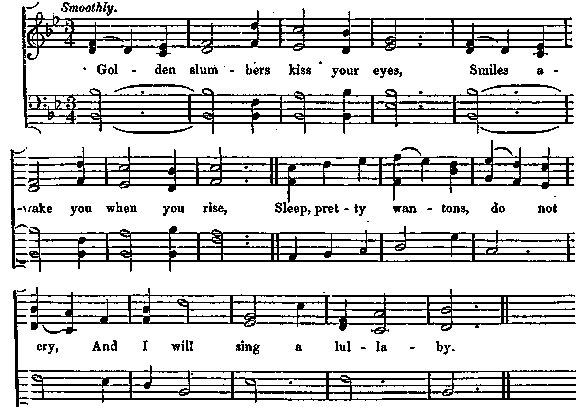Popular Music Of The Olden Time Vol 2
Ancient Songs, Ballads, & Dance Tunes, Sheet Music & Lyrics - online book
| Share page | Visit Us On FB |
|
REIGN OF CHARLES II. TO WILLIAM III. 587 |
|||
|
lie then went to see the tumbling and the dancing, and ends thus:— I thrust and shov'd along as well as ever I could, At last I did grovel into a dark hovel where drink was sold, They brought it in cans which cost a penny a-piece, adsheart! 1 'm zure twelve ne'er could vill a country quart.
Che went to draw her purse, to pay for their beer, But never a penny was left of my money, che'll vow and zwear, They took my hat for a groat, and turn'd me out o' th' door, Adswounds, Ralph, I never will go with such rogues any more.
MAY FAIR.
This is sometimes entitled May Fair, and sometimes, 0 Jenny, Jenny, where hast thou been f The latter is from a song by D'Urfey, entitled, The Willoughby Whim.
It is contained in Pills to purge Melancholy (i. 169, 1719); in The Beggars' Opera, 1728; The Grub Street Opera, 1731; The Fashionable Lady, or Harlequin's Opera, 1730 ; and in some editions of The Dancing Master.
May Fair was established as a Fair, " in the fields behind Piccadilly," in the time of Charles II. About the commencement of the last century, the ground was partially built over, and among other erections was a chapel, that became as celebrated for clandestine marriages as the precincts of the Fleet. The registers of those marriages are now in the parish church of St. George, Hanover Square.
This tune was probably a favorite at the fairs. The words that were written to it for ballad-operas possess but little interest apart from the dramas. I have therefore adapted an old lullaby. |
|||
|
|
|||
 |
|||
|
|
|||
|
Care you know not, therefore sleep, |
Sleep, pretty darlings, do not cry, |
||